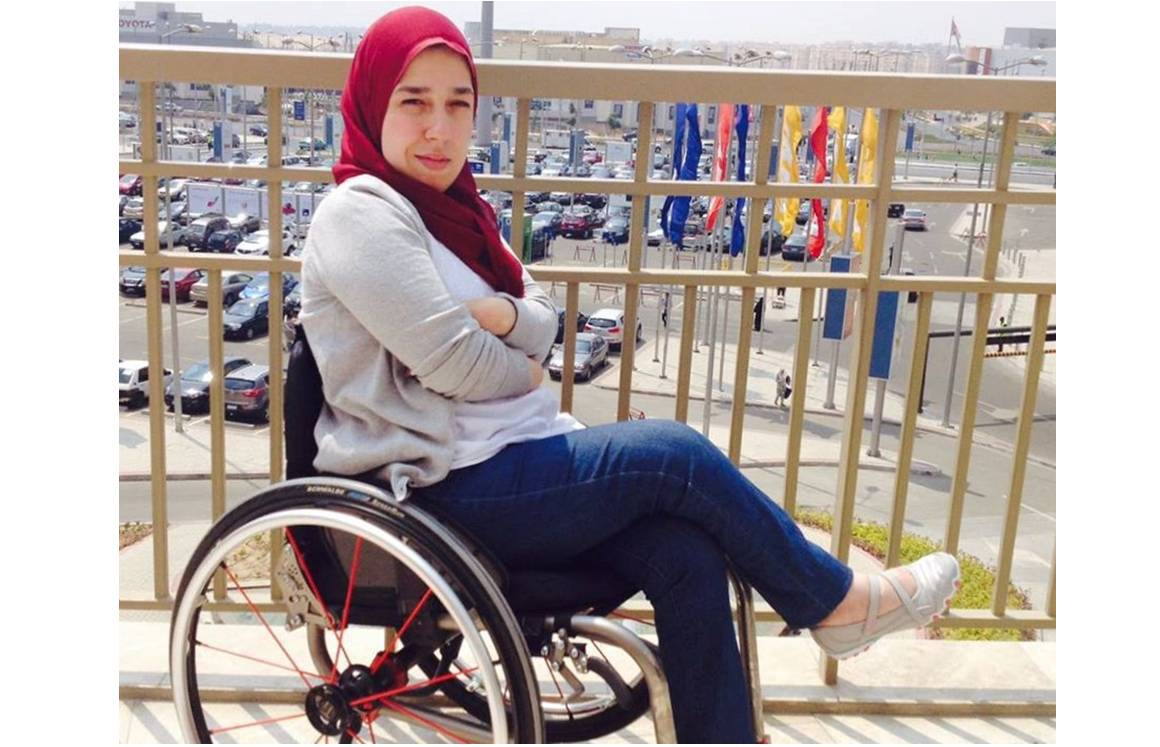For wheelchair-users, moving around the city can be problematic, with public transport being pretty much completely inaccessible and useable pavements being a rarity. These are problems that one of our magazine cover girls and advocate for the rights of the differently-abled, Maryam Mehanna knows all too well. As a result of these transportation issues, Maryam tells us, “Wheelchair-users have to rely on apps such as Careem and Uber, there is just no way we can get around using public transport.” So when she was met with an Uber driver who was unwilling to take her in her wheelchair, telling her that she would have to leave her wheelchair behind, she was outraged.
Maryam took to Facebook, recounting her story about this driver in a post that quickly went viral. She tells us that the responses to her post were amazing, “I was so surprised by how quickly it spread, I had complete strangers messaging me on Facebook telling me that they supported me and asking if I needed any help, some of them even helped me email Uber. I even had a man message me saying that he had been using Uber around the world for five years, but after seeing this post had decided that he would boycott them until they issued a public statement, which was incredible! All the positive responses reminded me that there are plenty of good people in the world.”

They didn’t have to wait long for Uber- known for its positive and prompt customer responses- to offer its apology to Maryam and publish a Facebook post outlining their commitment to providing accessible transportation and restating their no-tolerance policy on any forms of discrimination. They also offered Maryam free Uber rides and ensured that the driver in question would no longer be able to respond to her lift requests. According to Maryam, she was determined to get the public statement as opposed to just the freebies, because “Uber have their internal policies which state that they oppose any forms of discrimination. What happened to me was discrimination so it was important for them to be held accountable and to come out and stand by their policies.” Maryam also believes that is important for a multi-national corporation to bring attention to the rights and needs of the differently-abled in Egypt, raising much needed awareness in a country which often holds negative stereotypes and prejudice towards wheelchair-users.

Maryam makes clear that for her this wasn’t about giving a company a bad name, “I was standing up for what I believe is a right for all people, access to transport, so it wasn’t about giving Uber bad publicity. In fact when I spoke to them, their reaction was very caring and it was clear that they were willing to do something to change. Once they had done what I had asked and put out the public response, I deleted my original Facebook post, because I didn’t want people to keep sharing it and give Uber negative attention.”
Although Uber’s positive response will hopefully achieve Maryam’s goal of raising awareness about the issues that her and others in her position face, there is still more to be done. Maryam suggests, “Uber need to train their drivers to be able to properly help differently-abled customers. Each person has different needs, I thankfully am able to move with a lot of independence, but others aren’t in the same position and need a lot more physical support. Drivers should be trained to be able to facilitate these people as well and to know that we wheelchair users aren’t aliens! Maybe one day there could be an alternative service designed specifically to transport differently-abled passengers with ramps and properly trained drivers, but something like that would be expensive. In the meantime companies like Uber have to make sure that their drivers are able to provide a suitable service.”
For the future of accessibility in Egypt, Maryam is both hopeful and ambitious, “I dream that one day, Egypt will be as accessible as places like Dubai and the UK and the US. But for that to happen, differently-abled people have to speak out about these kinds of incidents because for things to change, we need to keep spreading awareness and insist that we get access to the same things as everyone else.”

